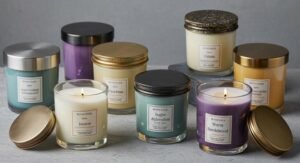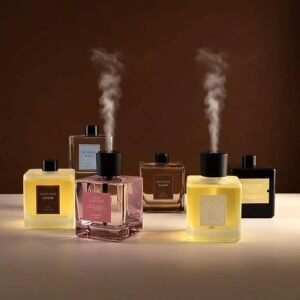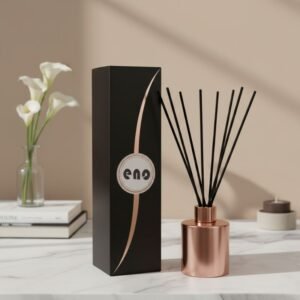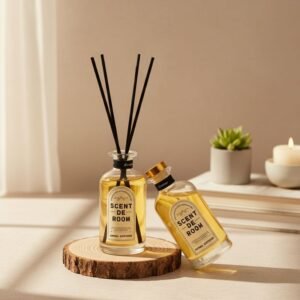Poor fragrance selection destroys entire candle production runs, costing thousands in wasted materials and disappointed customers.
Choose candle fragrance manufacturers based on IFRA certifications, production capacity, custom development capabilities, and quality control processes to ensure consistent scent performance for your OEM candle production and private label operations.
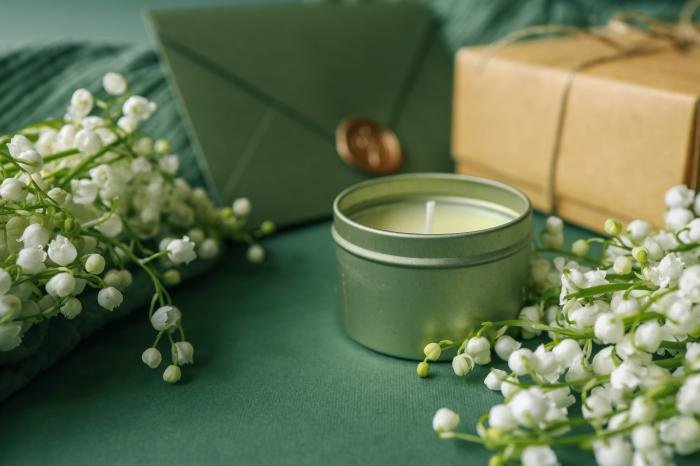
The fragrance industry faces mounting challenges with regulatory compliance, consistency in large-scale production, and creating signature scents that differentiate brands in saturated markets.
What Certifications and Compliance Standards Should You Look For?
Sourcing fragrance oils without proper certifications puts your entire candle production at risk. One non-compliant batch could trigger costly recalls and damage your brand reputation permanently.
When evaluating fragrance suppliers, prioritize IFRA standards certification, GMP compliance, and GSFC documentation to ensure regulatory compliance and product safety for your aromatic compounds.
Core Safety Certifications Every Supplier Must Have
The International Fragrance Association (IFRA) standards represent the gold standard for fragrance safety certifications. Your supplier should provide a Certificate of Conformity to IFRA standards, confirming that their aromatic compounds meet strict safety requirements for candle applications. This document establishes usage limits for specific fragrance materials and ensures consumer safety.
Good Manufacturing Practice (GMP) certification demonstrates that your supplier follows standardized production processes. This includes proper handling of raw materials, contamination prevention, and consistent quality control throughout manufacturing. ISO 9001 certification further validates their quality management systems and process documentation.
Regulatory Compliance Documentation Requirements
GSFC compliance documentation proves your supplier adheres to fragrance industry safety protocols. Request certificates showing compliance with relevant regional regulations, including EU REACH, US CPSC guidelines, and other applicable standards. Your supplier should maintain detailed safety data sheets (SDS) for all fragrance materials.
| Certification Type | Purpose | Validity Period | Industry Standard |
|---|---|---|---|
| IFRA Standards | Safety usage limits | Annual updates | Mandatory |
| GMP Certification | Manufacturing quality | 3 years | Essential |
| ISO 9001 | Quality management | 3 years | Recommended |
| GSFC Compliance | Industry safety protocols | Ongoing | Required |
Loveeno maintains all essential certifications and provides comprehensive documentation packages, ensuring your candle production meets global regulatory compliance standards while maintaining consistent quality and safety protocols.
How Can You Evaluate a Manufacturer’s Production Capacity?
Poor production capacity evaluation leads to delayed launches and unsatisfied customers. Insufficient research causes costly mistakes in partner selection. The right evaluation framework ensures seamless scaling and reliable supply chains.
Evaluate a manufacturer’s production capacity by assessing their maximum output volumes, minimum order quantities, manufacturing lead times, and scaling capabilities to ensure they can meet your current and future bulk candle fragrance requirements.
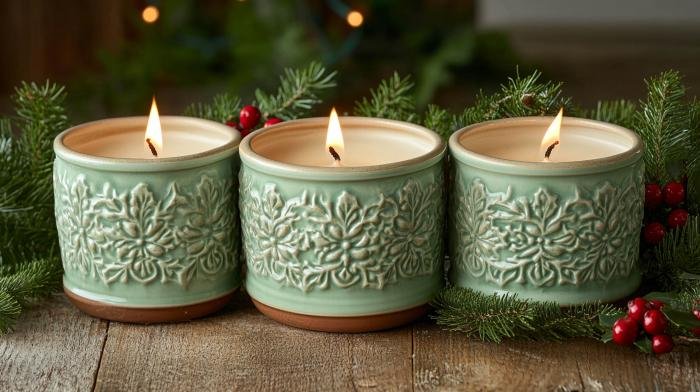
Key Production Metrics to Assess
Production capabilities extend beyond simple volume numbers. Start by examining monthly output capacity – reputable manufacturers should clearly state their maximum monthly production volumes for bulk candle fragrances. Manufacturing lead times reveal operational efficiency; industry standards range from 3-6 months for custom formulations, while stock fragrances typically ship within 2-4 weeks.
Minimum order quantities directly impact your business scalability. Most professional fragrance manufacturers require MOQs between 500-1,000 units for private label projects. However, established suppliers like Loveeno offer flexible arrangements for growing brands, allowing smaller initial orders while maintaining competitive pricing as volumes increase.
Scaling Capacity and Compliance Infrastructure
Scaling capacity requires robust infrastructure and compliance frameworks. Examine the manufacturer’s certification portfolio – ISO certifications, IFRA compliance, and regional safety standards indicate serious operational capabilities. Request facility tour documentation or third-party audits to verify claimed capacities.
| Capacity Factor | Industry Standard | Red Flags |
|---|---|---|
| Monthly Output | 10,000+ units | Vague volume claims |
| Lead Times | 3-6 months custom | No timeline commitments |
| MOQ Flexibility | 500-1,000 units | Rigid, high minimums |
| Certifications | ISO, IFRA compliant | Missing documentation |
| Scaling Timeline | 30-60 days | No expansion plans |
Evaluate their supply chain resilience by asking about backup suppliers, inventory management systems, and emergency production protocols. Strong manufacturers maintain relationships with multiple raw material suppliers and can demonstrate consistent delivery performance during market disruptions.
Is the Fragrance Library and Custom Development Process Right for Your Brand?
Struggling to find signature scents that differentiate your candle brand? Generic fragrances flood the market, making your products blend into the background.
A robust fragrance library and custom development process can transform your brand positioning. The right scent suppliers offer both extensive libraries and bespoke creation services tailored to your specific market needs.
Evaluating Fragrance Library Depth and Accessibility
A comprehensive fragrance library should contain 500+ proven formulations across multiple scent families. Quality scent suppliers provide detailed fragrance profiles, including throw strength, burn performance, and seasonal appeal data. When evaluating suppliers, examine their testing protocols and compatibility with different wax types.
Consider suppliers who offer sample programs and small-batch testing capabilities. This approach minimizes risks while allowing thorough fragrance testing before committing to large orders. Loveeno’s extensive fragrance library includes performance metrics for each scent, helping brands make informed decisions based on their target market preferences.
Custom Development Timeline and Investment Analysis
| Development Phase | Timeline | Investment Level | Key Deliverables |
|---|---|---|---|
| Initial Consultation | 1-2 weeks | Low | Scent brief, market analysis |
| Formula Creation | 4-6 weeks | Medium | 3-5 prototype variations |
| Testing & Refinement | 2-4 weeks | Medium | Performance validation |
| Final Production | 1-2 weeks | High | Custom fragrance oils |
Custom fragrance development typically requires 8-12 weeks and substantial upfront investment. Evaluate whether your brand volume justifies this cost versus selecting from established libraries. Suppliers with strong custom development processes offer milestone reviews, allowing adjustments without complete restarts. This structured approach ensures signature scents align with your brand vision while meeting production scalability requirements.
Why Are Quality Control Processes and Partnership Terms Essential Factors?
Poor fragrance quality ruins entire candle batches, devastating production schedules. Unreliable suppliers create costly delays and quality inconsistencies. Robust quality control and clear partnership terms protect your business.
Quality control processes ensure fragrance consistency, while partnership terms define bulk pricing structures, delivery schedules, and manufacturer reliability standards. These factors directly impact production costs, scalability, and brand reputation.
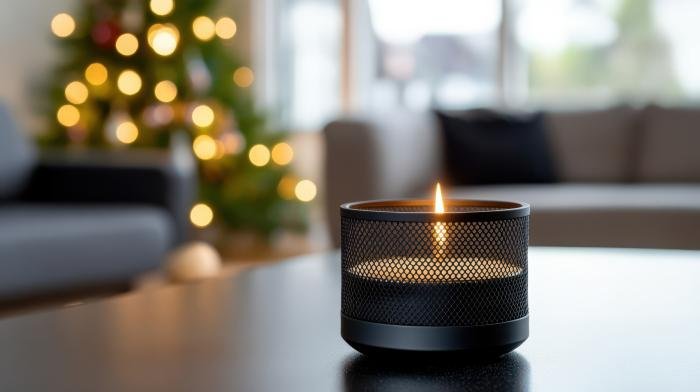
Critical Quality Control Checkpoints
Effective fragrance quality control requires systematic consistency testing throughout the supply chain. Gas chromatography testing verifies chemical composition matches specifications. Flash point testing ensures safety compliance. Cold throw and hot throw evaluations confirm scent performance meets expectations.
Loveeno implements rigorous testing protocols at every production stage. Each fragrance batch undergoes viscosity testing, color consistency checks, and stability assessments. These measures guarantee uniform quality across bulk orders, protecting your brand reputation.
Partnership Terms That Drive Success
Strategic partnership terms establish clear expectations for bulk pricing, minimum order quantities, and delivery timelines. Well-defined agreements include quality guarantees, return policies, and escalation procedures. These terms create accountability and ensure manufacturer reliability.
| Partnership Element | Standard Terms | Premium Suppliers |
|---|---|---|
| Bulk Pricing Tiers | 5-10% discount | 15-25% discount |
| Quality Guarantee | 30-day return | 90-day warranty |
| Lead Times | 4-6 weeks | 2-3 weeks |
| Testing Documentation | Basic COA | Full analytical reports |
| Customization Support | Limited options | Full formulation services |
Strong partnership terms also address compliance flows and production scalability requirements. Clear documentation prevents misunderstandings and ensures smooth operations as your business grows.
Conclusion
Selecting the right candle fragrance manufacturers requires evaluating IFRA compliance, production capacity, fragrance libraries, and quality control processes. Focus on suppliers with proper certifications, scalable manufacturing capabilities, comprehensive testing protocols, and transparent partnership terms. These criteria ensure consistent fragrance performance, regulatory compliance, and reliable supply chains for your OEM candle production and private label operations, ultimately protecting your brand reputation and supporting sustainable business growth.
FAQ
Q1: What certifications should I look for in candle fragrance manufacturers?
Reputable candle fragrance manufacturers should hold ISO 9001 quality management certification, IFRA compliance certification for fragrance safety standards, and often SGS testing verification. These certifications ensure consistent quality, regulatory compliance, and product safety for OEM candle producers and private brands.
Q2: How do I verify a manufacturer’s GSFC/IFRA compliance for candle fragrances?
Request their IFRA Certificate of Conformity and Safety Data Sheets (SDS) for each fragrance. Reputable manufacturers provide transparent documentation showing compliance with International Fragrance Association standards, which ensures safe usage levels and proper labeling for candle production.
Q3: What production scaling capacity should candle fragrance manufacturers offer?
Quality manufacturers should offer flexible scaling from small batch R&D samples (1-5kg) to full production runs (500kg+). Look for manufacturers with modular production lines that can handle both custom formulations and bulk orders while maintaining consistent quality and compliance throughout the supply chain.
Q4: How long does it typically take for candle fragrance manufacturers to deliver custom formulations?
Standard delivery times range from 2-4 weeks for custom formulations, including R&D, testing, and compliance verification. Established manufacturers with robust production capabilities can often expedite to 1-2 weeks for repeat customers or standard formulations, ensuring timely supply chain integration.
Q5: What quality control measures do professional candle fragrance manufacturers implement?
Professional manufacturers implement multi-stage quality control including raw material verification, in-process testing, finished product analysis, and batch consistency checks. They maintain detailed traceability systems, conduct stability testing, and provide Certificate of Analysis (COA) for each batch to ensure compliance and performance consistency.
- IFRA Standards Library – Comprehensive Fragrance Safety Guidelines
- ISO Certification Directory – Verified Quality Management Systems
- SGS Testing Services – Global Compliance and Quality Verification
- ThomasNet Manufacturer Directory – Verified Industrial Suppliers
- Fragrance Industry Compliance Guide – Regulatory Requirements Overview

